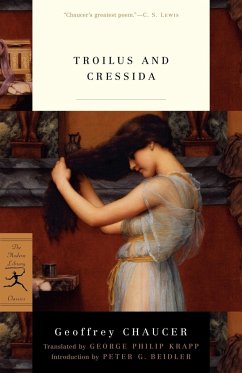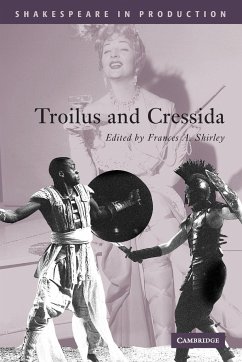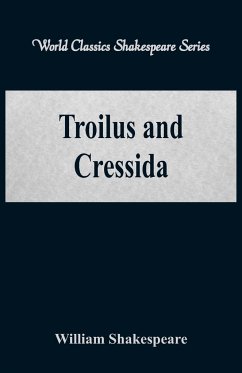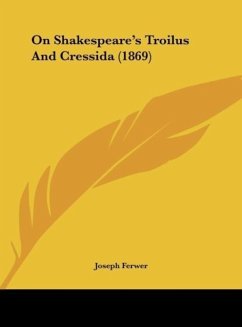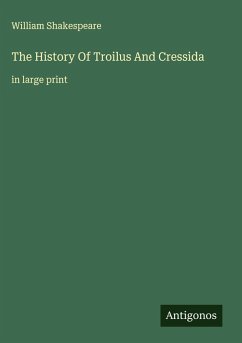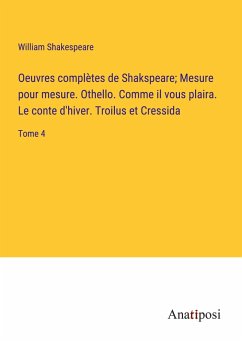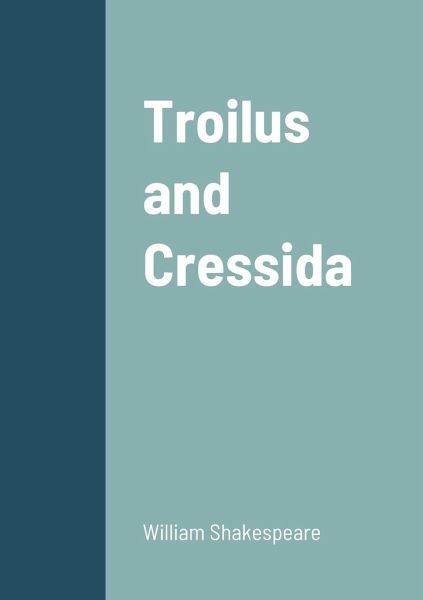
Troilus and Cressida
Versandkostenfrei!
Versandfertig in 1-2 Wochen
29,99 €
inkl. MwSt.

PAYBACK Punkte
15 °P sammeln!
Troilus and Cressida is a tragedy by William Shakespeare, believed to have been written in 1602. It was described by Frederick S. Boas as one of Shakespeare's problem plays. The play ends on a very bleak note with the death of the noble Trojan Hector and destruction of the love between Troilus and Cressida. The work has in recent years "stimulated exceptionally lively critical debate".Throughout the play, the tone lurches wildly between bawdy comedy and tragic gloom, and readers and theatre-goers have frequently found it difficult to understand how one is meant to respond to the characters. Se...
Troilus and Cressida is a tragedy by William Shakespeare, believed to have been written in 1602. It was described by Frederick S. Boas as one of Shakespeare's problem plays. The play ends on a very bleak note with the death of the noble Trojan Hector and destruction of the love between Troilus and Cressida. The work has in recent years "stimulated exceptionally lively critical debate".Throughout the play, the tone lurches wildly between bawdy comedy and tragic gloom, and readers and theatre-goers have frequently found it difficult to understand how one is meant to respond to the characters. Several characteristic elements of the play (the most notable being its constant questioning of intrinsic values such as hierarchy, honour and love) have often been viewed as distinctly "modern", as in the following remarks on the play by author and literary scholar Joyce Carol Oates:Troilus and Cressida, that most vexing and ambiguous of Shakespeare's plays, strikes the modern reader as a contemporary document - its investigation of numerous infidelities, its criticism of tragic pretensions, above all, its implicit debate between what is essential in human life and what is only existential are themes of the twentieth century. ... This is tragedy of a special sort - the "tragedy" the basis of which is the impossibility of conventional tragedy.Troilus and Cressida is set during the later years of the Trojan War, faithfully following the plotline of the Iliad from Achilles' refusal to participate in battle, to Hector's death. Essentially, two plots are followed in the play. In one, Troilus, a Trojan prince (son of Priam), woos Cressida, another Trojan. They profess their undying love, before Cressida is exchanged for a Trojan prisoner of war. As he attempts to visit her in the Greek camp, Troilus glimpses Diomedes flirting with his beloved Cressida, and decides to avenge her perfidy.While this plot gives the play its name, it accounts for only a small part of the play's run time. The majority of the play revolves around the leaders of the Greek and Trojan forces, Agamemnon and Priam, respectively. Agamemnon and his cohorts attempt to get the proud Achilles to return to battle and face Hector, who sends the Greeks a letter telling them of his willingness to engage in one-on-one combat with a Greek soldier. Ajax is originally chosen as this combatant, but makes peace with Hector before they are able to fight.






